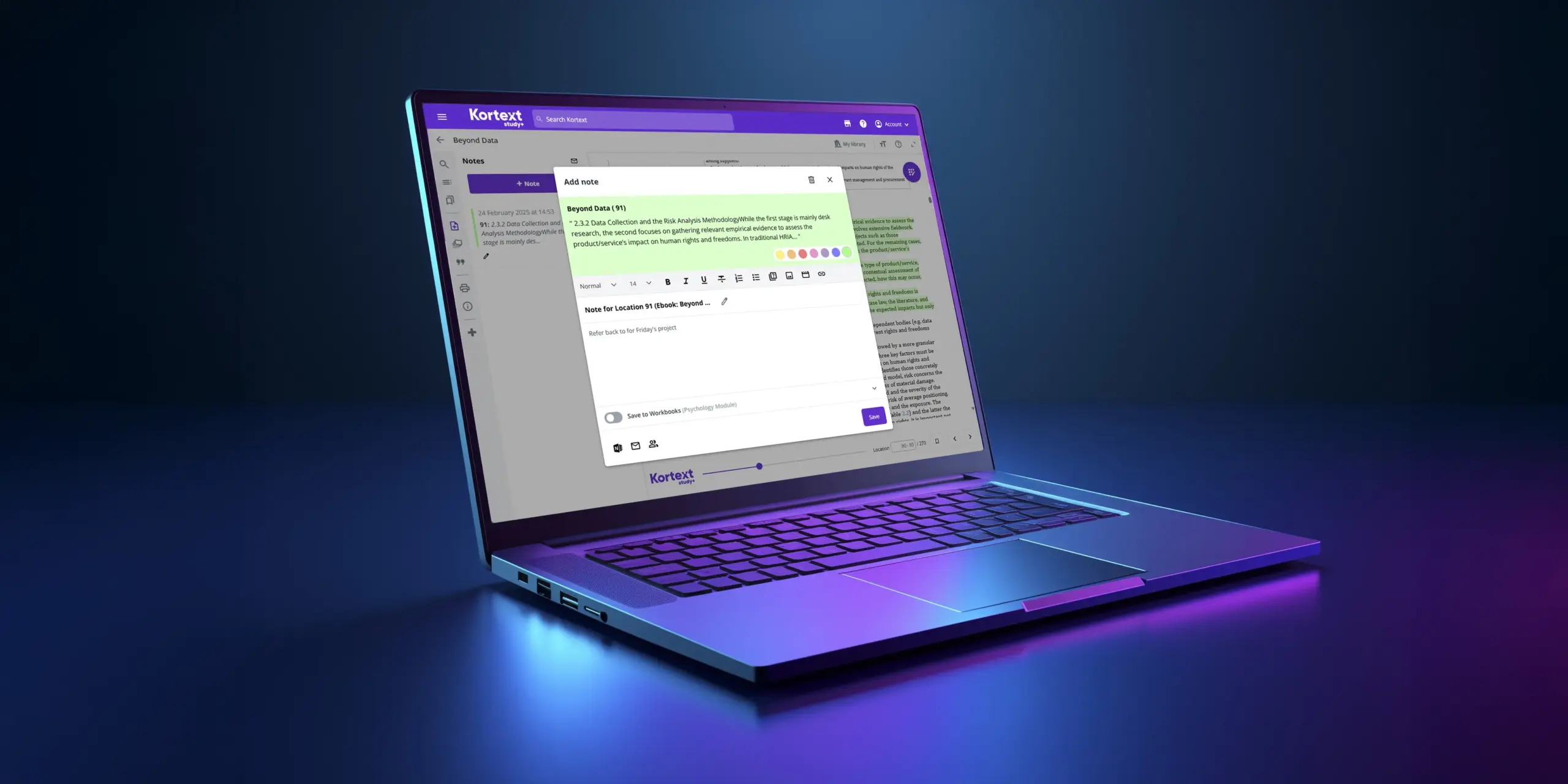In this blog, we take a look at ‘Setting the Curve’, the white paper we launched in partnership with Wonkhe, through the lenses of inclusivity and student engagement.
Using insights from this research, we’ll explore how technology can create a more inclusive learning environment for all students in the post-pandemic higher education landscape.
Inclusivity through technology
In the spring of 2023, Wonkhe and Kortext conducted a survey of 463 academic and teaching learning support professionals in UK universities.
The survey revealed that 79% of respondents identified as ‘enthusiasts’ for improving learning, teaching, and student support through the development of digital capabilities.
When asked why, answers included ‘enabling more accessible inclusive learning’ and ‘the prospect of engaging and enthusing students in learning in new ways’.
“I have always been keen to ensure that we provide ways for students to engage, whatever their circumstances. Effective use of digital platforms/software and also providing such to students is a way to do this.” Academic, post-92 institution.
The majority of respondents (78%) were very confident (selecting four or five on a five-point scale) that enhancing organisational or individual digital capabilities can contribute to broader organisational goals for student learning and success.
Those who expressed confidence outlined benefits such as ‘creating more student-centred learning and co-creation’, ‘improving student engagement through interactivity’, and ‘inclusion of a wider range of learners’.
“I’m a firm believer that moving towards a more digital offering helps make learning more accessible and if we’re doing that, I think student success will come with it. There will obviously be other challenges as well and we need to ensure equitable access as a starting point.” Academic, pre-92 university.
These benefits are evidenced in the case study by Professor Keith McLay, Provost (Learning and Teaching), and John Hill, Head of Digital Learning, at the University of Derby. Professor McLay explained that ‘Inclusive practice is axiomatic to digital practice’ at the university.
This approach has had a positive impact, with the development of ‘a more inclusive and accessible space for students’ resulting in ‘the elimination of degree outcomes differences for disabled students in 2021-22.’

Personalised learning experiences
Using technology to enhance learning has numerous advantages, such as enabling personalised learning experiences for students, whilst analytics facilitate data-driven decision making for more targeted student support.
According to the survey, educators strongly supported the increasing digitisation of learning materials, such as eBooks, with 80% of respondents expressing high confidence levels (choosing four or five on a five-point scale).
In addition, a significant majority (64%) favoured utilising student engagement data for analytics in order to inform student academic support and improve pedagogy.
Kortext’s smart study platform enables students to access eBooks anytime, anywhere, on any device. The eReader’s functionality means an eBook’s interface can be personalised, allowing students to adjust text size, font style, and background colour to suit their preferences.
Further, Kortext Academic Analytics offer real-time data, helping educators to gain valuable insights at module, eBook and individual student levels. This enables academics to reflect on student engagement with learning materials, facilitating early intervention and fostering successful student outcomes.
“…the potential of a platform like Kortext is most fully realised when it acts as the enabling mechanism for the course construct created by educators. Good pedagogy and a well-designed student journey frame the intended learning processes and outcomes; Kortext makes it possible.” James Gray, CEO, Kortext.
Interactive and collaborative tools
The successful use of student engagement data more broadly across an institution is shown in the case study by Jo Midgley, Registrar and Pro Vice-Chancellor (Student Experience), at UWE Bristol.
The university initially adopted the StREAM platform from Solutionpath (part of the Kortext family since 2022) to enhance student well-being by being able to more accurately identify students who were struggling and contact them with an offer of support.
“…we have been able to provide more specialist support for those who might not identify themselves to us as needing it, and support others to persist and achieve more than they might have without an intervention.” Jo Midgley, Registrar and Pro Vice-Chancellor (Student Experience), UWE Bristol.
However, student engagement data is also facilitating active student participation and collaboration in their learning journey. Among other strategies, UWE is investigating how students’ awareness of their own engagement levels could encourage them to seek assistance in overcoming barriers that might hinder their success.

Accessibility and accommodation
How can technology address accessibility challenges, ensuring all students have equal opportunities for academic achievement?
Professor Tony Moss, Pro Vice-Chancellor Education and Student Experience, at London South Bank University, commented that ‘Technology is often essential for what you want to do at scale’.
He explained that online tools can ‘sometimes be more accessible for students in need of support than in-person encounters’. For instance, students dealing with sensitive topics like mental health issues might find it beneficial to disclose such information remotely.
“Students aren’t just a collection of demographic characteristics – they are individuals with different needs at different times.” Professor Tony Moss, Pro Vice-Chancellor Education and Student Experience, at London South Bank University.
London South Bank University has introduced an online tool for personal development planning, catering to various student success objectives.
At its core, the tool encourages students to report any challenges they may be facing. While students are requested to complete it annually, they have the flexibility to fill it out at any point. The tool offers students direct access to guidance and support, facilitates scheduling meetings with personal tutors, and allows anyone supporting the student to access their information.
More broadly, the tool generates valuable qualitative and quantitative data at a macro level, which can be used to direct strategic focus on areas needing student support.
“…we ask about access to technology at home, the length of the student’s commute, and their financial circumstances – which informs the professional teams that deal with those areas.” Professor Tony Moss, Pro Vice-Chancellor Education and Student Experience, at London South Bank University.
Technology is not a panacea
It’s important to note that technology is not a panacea – it needs to be thoughtfully implemented and carefully aligned with pedagogical needs within a higher education institution.
However, as the white paper reveals, technology can have a transformative impact, creating a more inclusive, engaging and effective learning environment for educators and students alike.
To download ‘Setting the Curve’, a collaborative white paper by Wonkhe and Kortext, tap here.






